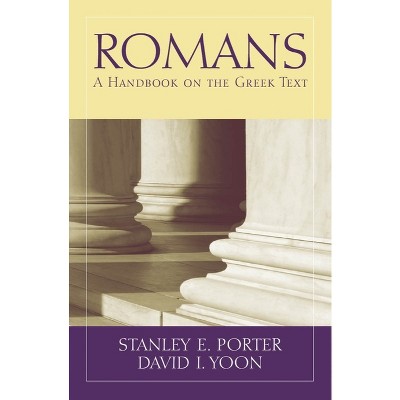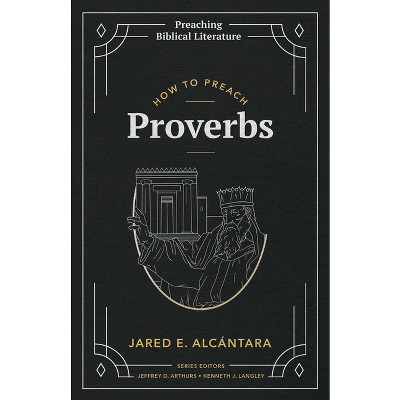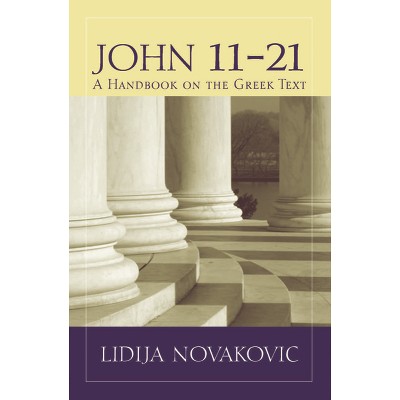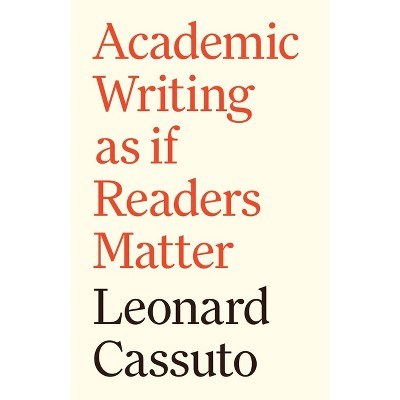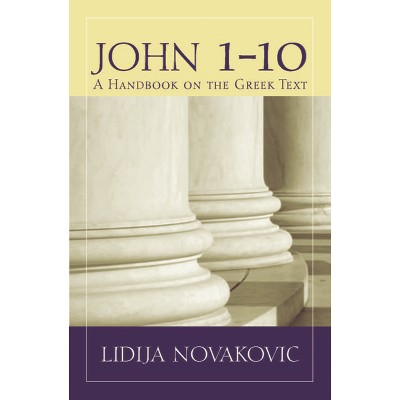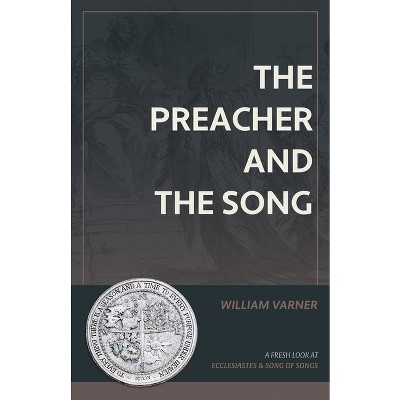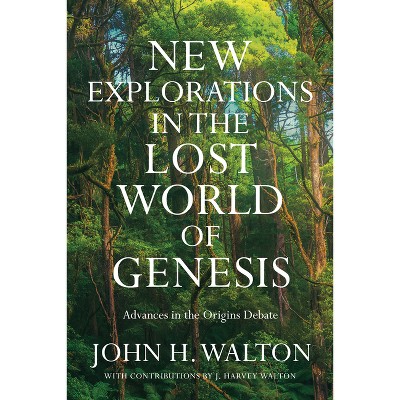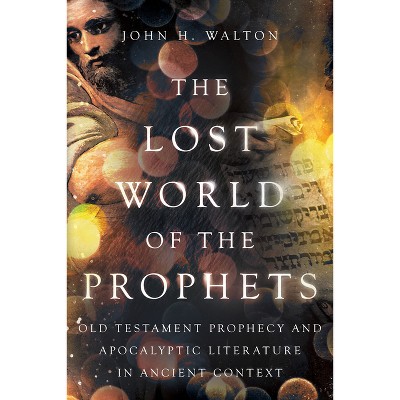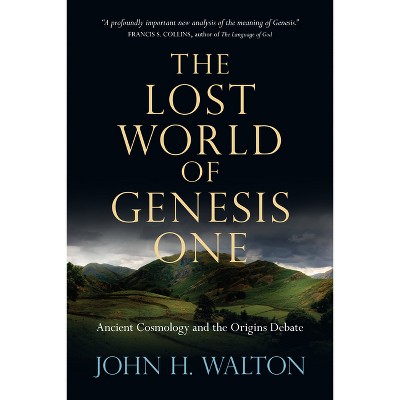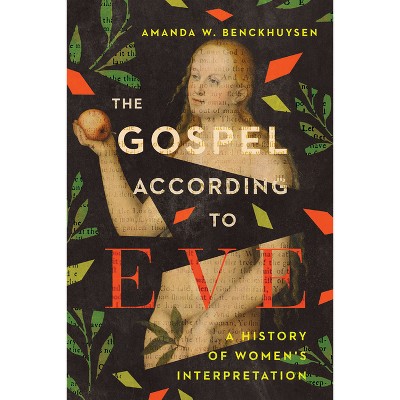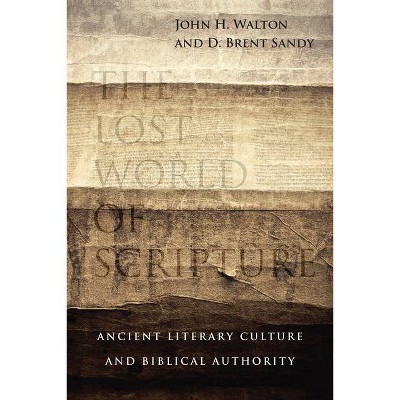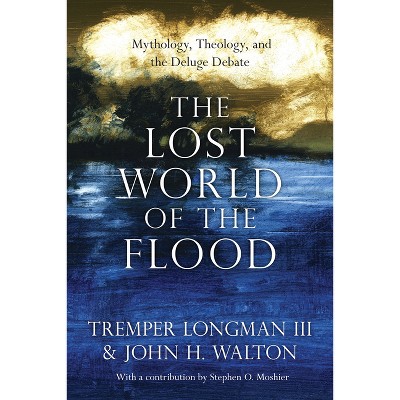Sponsored

The Lost World of Adam and Eve - by John H Walton (Paperback)
In Stock
Sponsored
About this item
Highlights
- Christianity Today Biblical Studies Award of MeritFor centuries the story of Adam and Eve has resonated richly through the corridors of art, literature and theology.
- Christianity Today Book Award (Biblical Studies) 2016 3rd Winner
- About the Author: John H. Walton (PhD, Hebrew Union College) is professor of Old Testament, emeritus, at Wheaton College and Graduate School.
- 256 Pages
- Religion + Beliefs, Biblical Studies
- Series Name: Lost World
Description
About the Book
What if reading Genesis 2-3 in its ancient Near Eastern context shows that the creation account makes no claims regarding Adam and Eve's material origins? John Walton's groundbreaking insights into this text create space for a faithful reading of Scripture along with full engagement with science, creating a new way forward in the human origins debate.
Book Synopsis
Christianity Today Biblical Studies Award of Merit
For centuries the story of Adam and Eve has resonated richly through the corridors of art, literature and theology. But for most moderns, taking it at face value is incongruous. And even for many thinking Christians today who want to take seriously the authority of Scripture, insisting on a "literal" understanding of Genesis 2-3 looks painfully like a "tear here" strip between faith and science.
How can Christians of good faith move forward? Who were the historical Adam and Eve? What if we've been reading Genesis--and its claims regarding material origins--wrong? In what cultural context was this couple, this garden, this tree, this serpent portrayed?
Following his groundbreaking Lost World of Genesis One, John Walton explores the ancient Near Eastern context of Genesis 2-3, creating space for a faithful reading of Scripture along with full engagement with science for a new way forward in the human origins debate. As a bonus, an illuminating excursus by N. T. Wright places Adam in the implied narrative of Paul's theology.
The Lost World of Adam and Eve will be required reading for anyone seeking to understand this foundational text historically and theologically, and wondering how to view it alongside contemporary understandings of human origins.
The books in the Lost World Series follow the pattern set by Bible scholar John H. Walton, bringing a fresh, close reading of the Hebrew text and knowledge of ancient Near Eastern literature to an accessible discussion of the biblical topic at hand using a series of logic-based propositions.
Review Quotes
"[T]his book is an intelligent discussion of new ways to view the story of Adam and Eve. . . . What Walton does with faith and learning is to save a certain sort of Christian reader, once again, from over-literalism not respectful of either Hebrew scripture or contemporary science. Walton's intriguing volume should appeal to pastors and academics, as well as seminary students."
--Graham Christian, Library Journal, May 15, 2015"John Walton is a gift to the church. In his writing and speaking he has helped Christians to faithfully read the Bible in an environment of competing scientific claims. Now, in The Lost World of Adam and Eve, Walton provides a profoundly evangelical account of how the Bible speaks of Adam and Eve by treating the statements of Scripture in their ancient historical context. This book is the first thing to put in the hands of those wrestling with the perceived tension between the Bible and science."
--Timothy Gombis, Grand Rapids Theological Seminary"Never has it been more important to think carefully about the intent of the human creation narrative: to view it through the objective of the narrator as the story was first written down and to seek to understand it through the mind of the audience as it was first heard. . . . Given his many years of teaching experience in evangelical institutions and his remarkable communication skill, perhaps no one is better equipped to guide us through this task than John Walton. The Lost World of Adam and Eve is a masterful analysis of authorial intent and contextual understanding of the Genesis narrative in its contemporary Hebrew culture. Walton's years of teaching have enabled him to successfully anticipate all the main questions and to address each in a highly readable fashion."
--Darrel Falk, professor of biology, Point Loma Nazarene University, senior advisor for dialog, BioLogos"There is much that is valuable in Walton's book for laypersons, students, and all those interested in the Bible-versus-science debate. In addition, Walton's reconsideration of key terms and concepts in Genesis 1-3 is challenging and worth contemplation by academic readers."
--Deane Galbraith, Journal of the Evangelical Theological Society, March 2015, 58:1"This book is a 'must-read' for anyone interested in the contemporary debate over human origins and how to understand the early chapters of Genesis."
--Douglas Mangum, Bible Study Magazine, May/June 2015"When strident voices who call the first three chapters of Genesis nothing but myth are met by equally strident voices declaring that the Bible, the gospel and the church will thereby collapse from the inside, we are tempted to take a side and start cheering. Then come the voices of reason that seek an opportunity to calm down the strident voices that often refuse to listen. John Walton is a voice of reason and he has shown time and time again that we must learn to read the Bible as God gave it, not the way we'd like it to be. Here we are treated to more 'propositions' about Adam and Eve that will anchor our faith in the ancient world in such a way that the fresh Spirit of God can blow on those chapters to illuminate all who will listen. Thank God for The Lost World of Adam and Eve."
--Scot McKnight, professor of New Testament, Northern SeminaryAbout the Author
John H. Walton (PhD, Hebrew Union College) is professor of Old Testament, emeritus, at Wheaton College and Graduate School. His many books include The Lost World of Genesis One and Wisdom for Faithful Reading.
A prolific writer of both scholarly and popular books, N. T. Wright has written over thirty books, including Simply Christian, The Original Jesus, What Saint Paul Really Said, The Challenge of Jesus, The Meaning of Jesus, Jesus and the Victory of God and the magisterial Paul and the Faithfulness of God. His N. T. Wright For Everyone Series includes commentaries covering the entire New Testament.Formerly bishop of Durham in England, Wright is research professor of New Testament and early Christianity at the University of St Andrews in Scotland. He was formerly canon theologian of Westminster Abbey and dean of Lichfield Cathedral. He also taught New Testament studies for twenty years at Cambridge, McGill and Oxford Universities. He has been a visiting professor at Harvard Divinity School, Hebrew University in Jerusalem, Gregorian University in Rome and many other institutions around the world.In addition to his many books, Wright reaches a broad audience through his frequent media appearances. A sought-after commentator, Wright writes frequently for newspapers in England, including the Times, the Independent and the Guardian. He has been interviewed numerous times by radio and television broadcasters on both sides of the Atlantic, including ABC, NBC, CNN, PBS and NPR.
Shipping details
Return details
Frequently bought together






